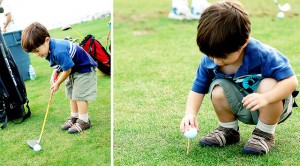 One of the most valuable outcomes of Collaborative Team Practice for many families is how respectfully the process helps prepare parents for effective co-parenting. Lee Eddison, a very experienced neutral coach in Collaborative Team Practice, aptly describes this as a …
One of the most valuable outcomes of Collaborative Team Practice for many families is how respectfully the process helps prepare parents for effective co-parenting. Lee Eddison, a very experienced neutral coach in Collaborative Team Practice, aptly describes this as a …
 Recently I participated in a case debrief with other members of a Collaborative team. The debrief, or case consultation, is a regular and ordinary part of Collaborative Team Practice. Any team member can request a debrief to get an…
Recently I participated in a case debrief with other members of a Collaborative team. The debrief, or case consultation, is a regular and ordinary part of Collaborative Team Practice. Any team member can request a debrief to get an…  Every couple and every divorce is different. A divorce is often a complicated process involving emotional and financial elements. While there is no universal process for divorce, there are some common mistakes. Indeed, if a divorcing couple could avoid these…
Every couple and every divorce is different. A divorce is often a complicated process involving emotional and financial elements. While there is no universal process for divorce, there are some common mistakes. Indeed, if a divorcing couple could avoid these…
Watching the Winter Olympics, a commercial captured my attention. The ad included footage of Olympic athletes who fell while competing, thus failing to reach a goal for which they had trained intensely and prepared for years. Although elite athletes know…
 I just saw the pulse-pounding film Gravity, about American astronauts who are stranded in space following an unexpected catastrophe. This is not a spoiler alert—anyone who has seen a trailer for the movie knows this is going to happen.…
I just saw the pulse-pounding film Gravity, about American astronauts who are stranded in space following an unexpected catastrophe. This is not a spoiler alert—anyone who has seen a trailer for the movie knows this is going to happen.…  Working with children, I became a Harry Potter fan out of both necessity and real appreciation. J.K. Rowlings’ world of wizards and magic is a fantasy, but the themes of these books are human and real. Among the most frightening …
Working with children, I became a Harry Potter fan out of both necessity and real appreciation. J.K. Rowlings’ world of wizards and magic is a fantasy, but the themes of these books are human and real. Among the most frightening …
 I had a familiar conversation recently, this time on the golf course. As with life, golf is both precise and random: precise because there are exactly 18 holes to play, and random because a golfer never quite knows how …
I had a familiar conversation recently, this time on the golf course. As with life, golf is both precise and random: precise because there are exactly 18 holes to play, and random because a golfer never quite knows how …

